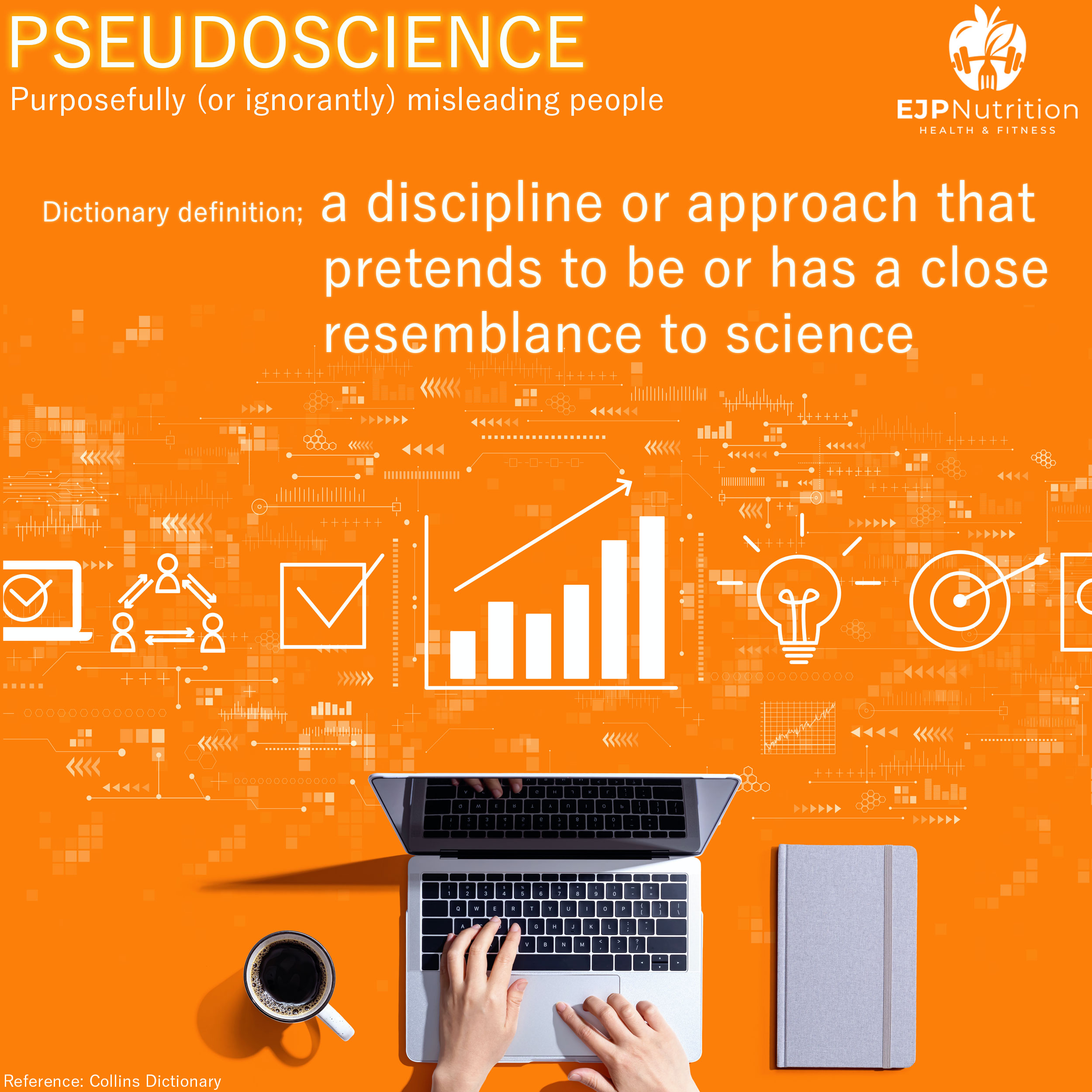The Collins dictionary definition of pseudoscience is: a discipline or approach that pretends to be or has a close resemblance to science.
There are a few similar definitions, but I liked this one with how it’s something *pretending* to be rooted in science! That part is why it’s so often easy to believe.
At one time or another we’ve all believed things that aren’t true. In nutrition this is taken to the next level, with so many strong contrasting views leaving people not knowing left from right. This is not the fault of the person believing what they hear. The problem stems from the people peddling misinformation, often knowingly.
Don’t eat carbs; here buy my book which explains why. Go keto to lower your insulin; buy my 30-day kickstarter plan. Everyone should be vegan; purchase my organic supplements.
A lot is harmless, and while it may waste your money it won’t be detrimental to your health. But the issue is it’s not all harmless. “Eating “insert diet plan” cured my cancer”. If someone with cancer then stops their medication or treatment because they think that changing their diet is a truly viable alternative (it isn’t! Please always listen to your doctor) it can be fatal, and has been in some cases.
This is why it’s important to correct misinformation, as there are instances where it does real harm.
One person saying something worked for them doesn’t mean it will work for everybody else. Having an evidence based approach isn’t looking at a single study (or one part of a study!). It’s the entire body of literature on specific topics. You can cherry pick information on almost anything to fit a fixed narrative. But doing that is pseudoscience, and it’s especially bad when it’s used to manipulate people who want or need help.
Bonus definitions (I looked up quite a few!):
From the Cambridge dictionary: a system of thought or a theory that is not formed in a scientific way.
From Merriam-Webster: a system of theories, assumptions, and methods erroneously regarded as scientific.


